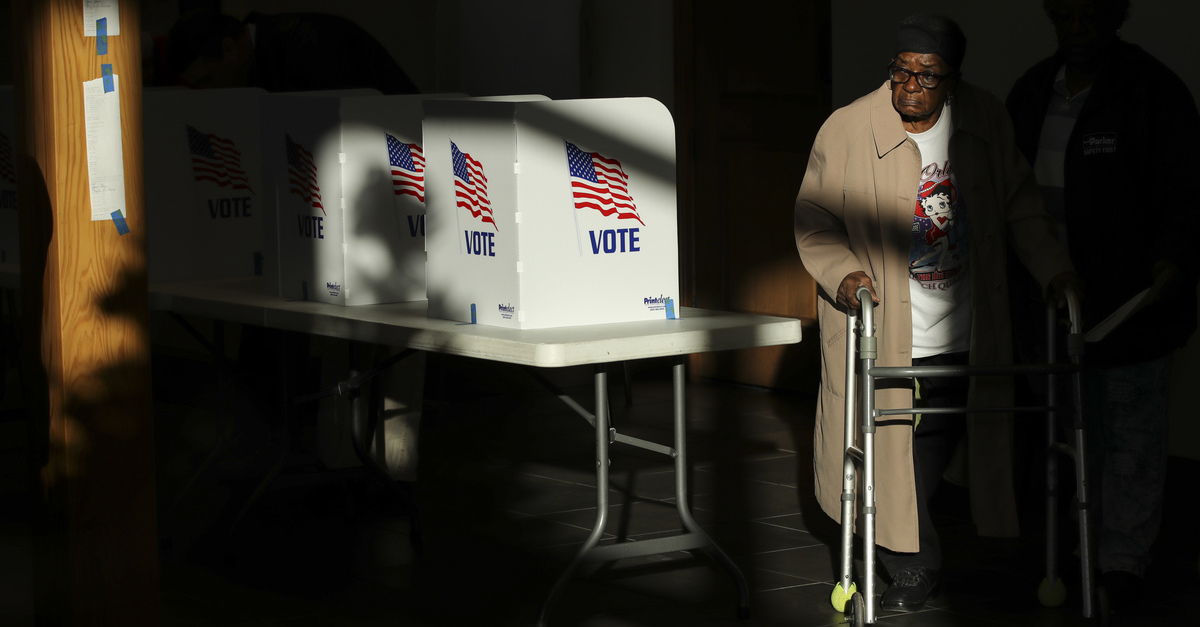
Mississippi wants voters with “a higher risk of severe illness or death” due to the novel Coronavirus (COVID-19) to vote in person, according to a filing with the state Supreme Court on Tuesday.
Mississippi Attorney General Lynn Fitch (R) filed the appeal against a September 2 ruling by a lower court that applied “longstanding” state absentee voting laws to the ongoing pandemic.
In her ruling, Hinds County Chancery Court Chancellor Denise S. Owens found that the voting law’s “temporary or permanent physical disability” absentee ballot-granting language almost entirely encapsulates “an underlying physical condition that places a voter at a higher risk of severe illness from COVID-19.”
Per the ruling:
[A]s it pertains to the issue of 1) whether Mississippi Code § 23-15- 713(d) permits any voter with pre-existing conditions that cause COVID-19 to present a greater risk of severe illness or death to vote by absentee ballot during the COVID-19 pandemic – is well-taken and the relief sought is hereby GRANTED to the extent that such pre-existing “physical. . . condition impairs, interferes with, or limits a person’s ability to engage in certain tasks or actions or participate in typical daily activities and interactions” or [is] an “impaired function or ability” that interferes thereof.
Fitch and Mississippi Secretary of State Michael Watson (R) took issue with the lower court’s interpretation.
Per the filing:
For decades, Section 23-15-713(d) has permitted voters with a “permanent or temporary physical disability” to vote absentee by mail. In the court below, plaintiffs contended that any voter with a pre-existing condition that might present greater risk of complications if the voter contracts COVID-19 has a “physical disability” under the statute. Plaintiffs’ theory is wrong. Only an actual “physical disability” triggers Section 23-15-713(d)’s absentee excuse, and not every pre-existing condition associated with COVID-19 risks is a “physical disability.”
“Any voter who has a pre-existing condition that is not itself a ‘physical disability’ cannot satisfy the statute, whether or not the voter believes that COVID-19 might make voting in-person dangerous,” the appeal continues. “The Chancery Court erred.”
A second argument by the voting rights-focused plaintiffs took the position that anyone quarantining due to guidance issued by the Mississippi Department of Health (MDH), the Centers for Disease Control and Prevention (CDC), or “or other physicians who are public health experts [who advise people] to avoid public gatherings” should also be allowed an absentee ballot under recently added language to the statute provides that a potential absentee voter must in a “physician-imposed quarantine” qualifies as well.
Chancellor Owens found that this language does not apply to such guidance but allowed an alternative interpretation of the statute that would apply to a voter “if he or she or any dependent has consulted with a physician who recommends, because of that individual’s physical disability or that of their dependent, not attending any public gathering because of the possibility of contracting COVID-19.”
The Magnolia State also said that interpretation was far too permissive.
“For its part, the Chancery Court correctly disagreed with plaintiffs’ broad reading, but still suggested that a mere physician’s ‘recommendation’ to quarantine can be a ‘physician-imposed quarantine.’ Both plaintiffs’ and the Chancery Court’s takes on the statute’s scope are incorrectly overbroad,” the briefing argues. “By its plain meaning, a voter is only ‘under a physician-imposed quarantine’ if the voter has been compelled to quarantine by an authorized physician.”
Voting rights advocates hailed the Owens ruling.
“This ruling means more Mississippians will not have to risk exposure to a deadly virus in order to vote. The court should have extended this to all voters, and we are examining next steps to ensure everyone can protect their health and their vote,” American Civil Liberties Union staff attorney Theresa Lee said.
Expect the plaintiffs to sharply contest Wednesday’s appeal.
Fitch and Watson also argue that residents shouldn’t worry about contracting COVID-19 at in-person polling locations.
“Local election officials responsible for administering election day activities will be well-equipped to handle their task of promoting and providing a safe voting environment at polling places,” the filing argues. “Enhanced safety precaution training will be provided.
AG Fitch Brief on Absentee … by Law&Crime
[image via Drew Angerer/Getty Images]